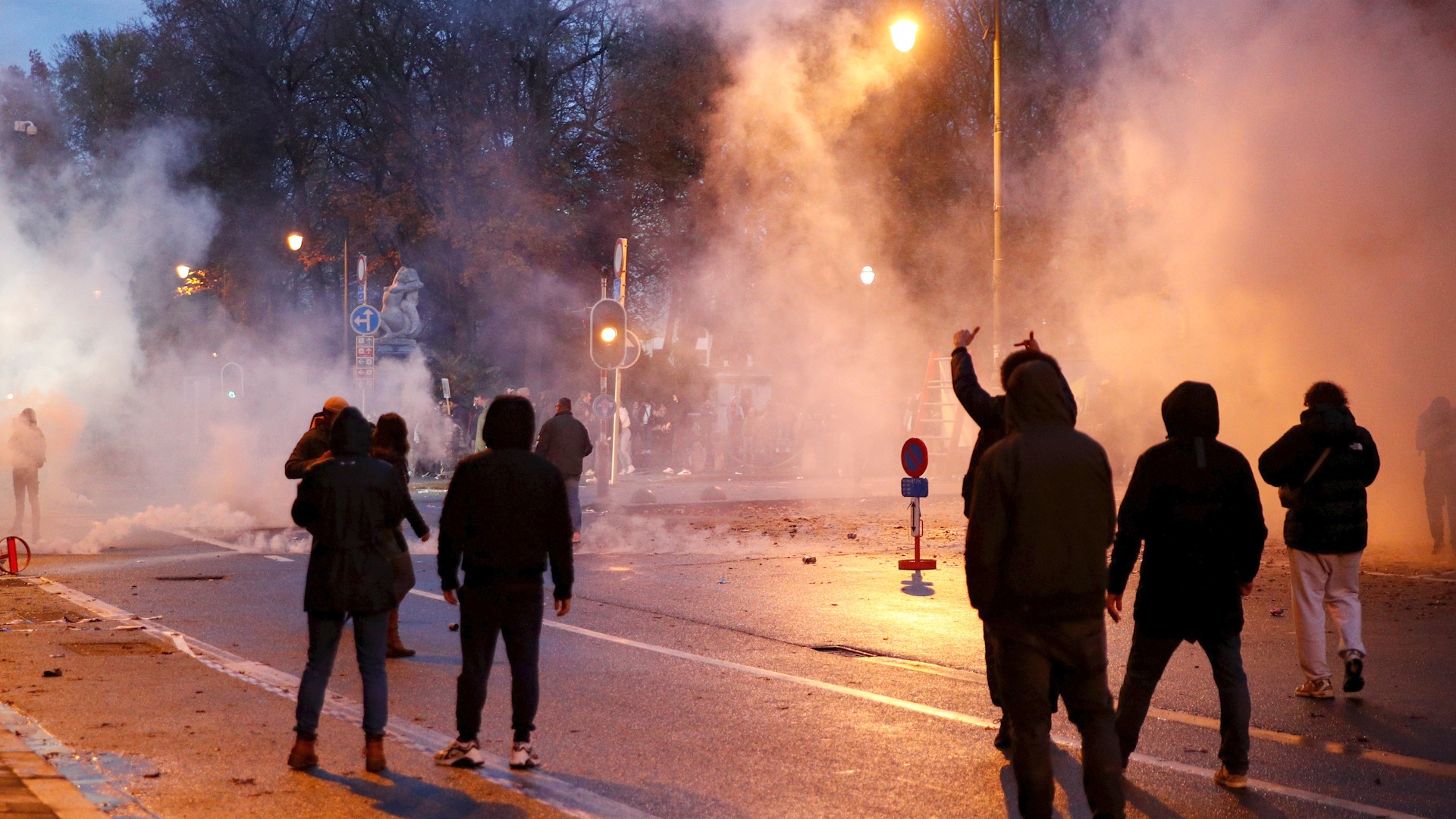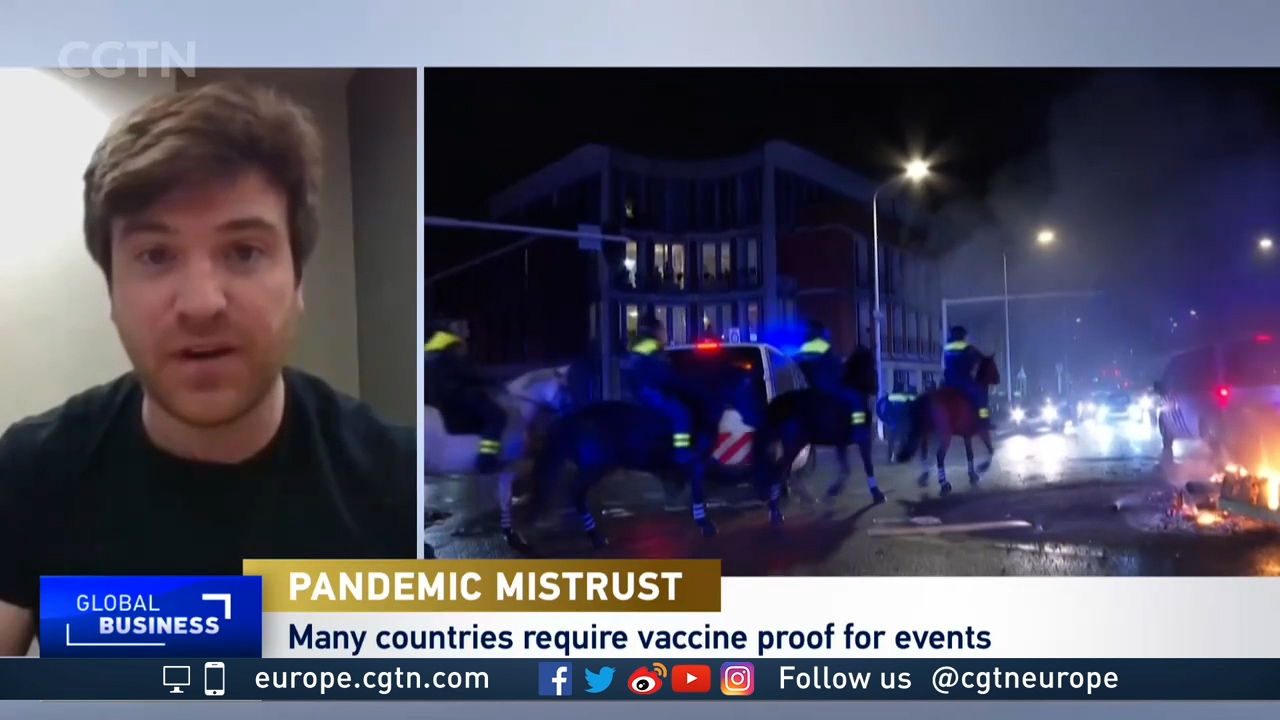
After a legal dispute with AstraZeneca following canceled deliveries, the European Union has increasingly placed its faith in mRNA vaccines instead./Matthias Schrader/AP
After a legal dispute with AstraZeneca following canceled deliveries, the European Union has increasingly placed its faith in mRNA vaccines instead./Matthias Schrader/AP
The CEO of AstraZeneca believes there could be a link between what he says is comparatively lower levels of COVID-19 hospitalizations in the UK, and the use of its vaccine in older people.
Unlike in the UK, the AstraZeneca vaccine was initially limited to those under 65 by a number of European governments.
After the vaccine had been given regulatory approval in January France's President Emmanuel Macron cast doubt on the drug's effectiveness by saying it had been rushed through and Germany's Chancellor Angela Merkel added to that by originally saying she would not get the vaccine.
In an interview with the BBC, the vaccine maker's chief Pascal Soriot said the adenovirus vaccine produced by the company provides a better T-cell response and, therefore, longer-lasting protection than vaccines that rely on mRNA technology, such as the Pfizer-BioNtech and Moderna jabs.
"The antibody response is what drives the immediate reaction or defense of the body when you are attacked by the virus," Soriot said. "And the T-cell response takes a little longer to come in. But it's actually more durable; it lasts longer."
Pushed on whether increasing hospitalizations in Europe were linked to EU countries not using the adenovirus jab in older people, Soriot said: "There's no proof of anything. We don't know. But we need more data to analyze this and get the answer."

TOP HEADLINES
· France's Prime Minister Jean Castex has tested positive for COVID-19 after finding out that one of his daughters had contracted the virus. Castex will isolate for 10 days after spending Monday in Brussels meeting Belgium's Prime Minister Alexander De Croo. The 56-year-old had been fully vaccinated in the spring and had never tested positive before.
· De Croo thanked police for working to protect the public in a "very difficult period," after three officers were injured when stones were thrown and fires started by protesters in Brussels. People took to the streets on Sunday chanting "freedom" to demonstrate over tougher measures, including working from home and mandatory mask-wearing. De Croo told the media "we live in a free country, we can protest, but the way in which some demonstrators behaved had nothing to do with freedom."
· "Probably by the end of this winter, as is sometimes cynically said, pretty much everyone in Germany will be vaccinated, cured or dead," Germany's Health Minister Jens Spahn has predicted, as he urged the public to get jabbed.
Watch: Giles Gibson reports on protests in Belgium:
02:04

Watch: Author David Robert Grimes on vaccines and conspiracy theories:
03:56

· A leading scientific body advising the French government on the pandemic has recommended extending the availability of booster shots to all vaccinated adults. Currently, France is only offering additional jabs to people over 65, but immunologist Alain Fischer from the Vaccine Strategy Orientation Council said that "to restore vaccine effectiveness to levels allowing us to control the epidemic," booster shots should be available to all adults.
· In the Netherlands Prime Minister Mark Rutte described the demonstrations over the weekend as "pure violence under the guise of protest." The country's return to a partial lockdown, with bars, cafes, restaurants and supermarkets closing at 8 p.m., led to three days of violence with at least 130 arrests. The government said on Monday that people needed to stick to the measures or else further restrictions would be implemented.
· Slovakia is the latest country to encourage a more significant uptake of vaccines by introducing restrictions for the unvaccinated, as it battles one of the world's highest infection rates. Those who have not received vaccines are no longer allowed to enter stores other than those considered essential, such as for food or medicine, even if they have a recent negative test.
FROM OUR GLOBAL COLLEAGUES
CGTN China: Chinese mainland records 19 confirmed COVID-19 cases
CGTN America: Revamping Chinatown neighborhoods in NYC
CGTN Africa: Expert calls for action on childhood tuberculosis in Africa
Cover image: Thomas Banneyer/AFP
Source(s): AFP
,Reuters

